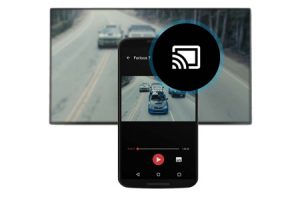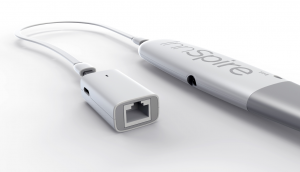Boston, MA (2018-06-04) –InnSpire is pleased to announce the recent implementation of one of its most recent technological innovations at the prestigious Boston Godfrey Hotel. Renowned for its award-winning solutions for hotels, InnSpire products are designed to enhance guest experiences and at the same time help hotels provide better entertainment while driving more sales.
The beautiful Godfrey Hotel, located at the aptly named Downtown Crossing in Boston, is a luxury boutique hotel offering upscale accommodations and personalized service. Hotel General Manager Larry Casillo is a big fan of innovation that drives an improved guest experience, which is why the Godfrey choose to partner with InnSpire. The InnSpire Wireless Qi Charger conveniently allows guests to charge their own compatible device by just placing it on the pad. The remote control charges wirelessly, completely eliminating the need for batteries.






